What is Computing Science and Mathematics?
Computing science includes computers themselves, computational theory, software design, patterns and processes, and human interaction with technology. Mathematics provides the critical foundation for computing science and is the principal language for all natural scientists.
Computing Science and Mathematics at Augustana
The hands-on skills you will learn in this major are enhanced by a thorough exposure to the underlying principles, theories, and ethics that carry on in spite of changes within the tech realm.
This major offers two unique streams: Computing Science and Computational and Applied Mathematics
Program Information
Computing Science and Mathematics is available as a:
- Major in Bachelor of Science
Academic Innovations
All programs at Augustana include a wide-ranging liberal arts and sciences core, taught within our unique “3-11” calendar
Careers
Join this integral and rapidly growing field with an undergraduate degree in Computing Science and Mathematics from Augustana in careers such as:
- Computer Modelling Specialist
- Software Engineer
- Web Developer
- Statistician
- and many more!
Computing Science AlumnUS

Research and Development Coordinator for the Royal Canadian Air Force
Brad credits Augustana's computing science program with preparing him to view problems analytically. He adds, “political studies and the liberal arts approach prepared me for understanding the human organizations and interactions.”
Course Highlights
Introduction to modern web architectures and technologies. Web platforms and standards. Client-side/server-side programming and web languages (e.g. HTML, JavaScript, PHP, CSS, Node.js). Introduction to internet security. Design and implementation of a simple web application.
Axiomatic systems and finite geometries; neutral geometry and the various parallel postulates, leading to Euclidean and hyperbolic geometry; constructions; isometries of the plane and groups of transformations, and inversions in circles; models for Euclidean and hyperbolic geometry; applications.
Fundamental concepts of discrete and continuous dynamical systems, both linear and nonlinear; nonlinear differential equations; deterministic, nondeterministic, and chaotic dynamics; strange attractors and fractals. Applications in ecology, biology and physics.
Operating system functions, concurrent process coordination, scheduling and deadlocks, memory management and virtual memory, secondary storage management and file systems, protection.
Survey of concepts and applications of artificial intelligence, including knowledge representation, state-space search, heuristic search, expert systems and shells, natural language processing, propositional logic, learning and cognitive models, vision; implementation using an AI language (LISP or PROLOG).
Related Information
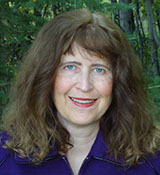
Rosanna Heise, MSc
Rosanna Heise has taught introductory and advanced programming courses, computer hardware, software engineering, assembly language, circuit design and some math courses.
Visit their website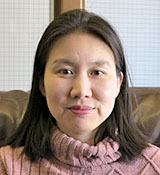
Mi-Young Kim, PhD
Mi-Young Kim teaches artificial intelligence, automata and complexity, and programming languages courses. Her research interests are in the area of natural language processing.
Visit their website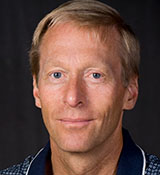
Gerhard Lotz, PhD
Gerhard Lotz teaches courses in all areas of physics and some areas of mathematics. His research involves trying to better understand the nature of the atomic nucleus.
Visit their website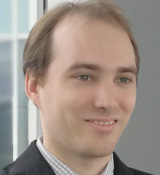
Thibaud Lutellier, PhD
Thibaud Lutellier teaches a range of computer science courses. His research interests are in the area of software reliability and artificial intelligence.
Visit their website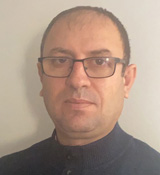
Mohammed Qasem, PhD
Mohammed Qasem teaches in the areas of computer science, including web design and development, parallel and distributed systems, algorithm design and analysis, computer architecture and operating system Concepts. His research centers mainly on computational intelligence.
Visit their website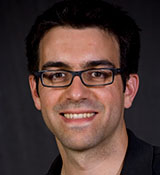
Jeremy Sylvestre, PhD
Jeremy Sylvestre teaches a range of mathematics courses, with a focus on algebra. His main area of research is the representation theory of algebraic groups defined over a p-adic field.
Visit their website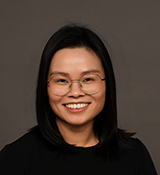
Ha Tran, PhD
Ha Tran teaches a range of mathematics and computing sciences courses. Her research focuses on number theory and applications in cryptography and coding theory.
Visit their website